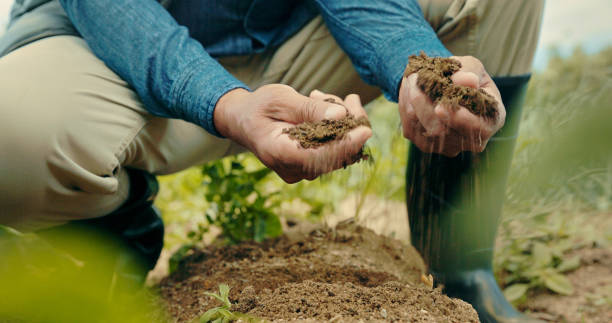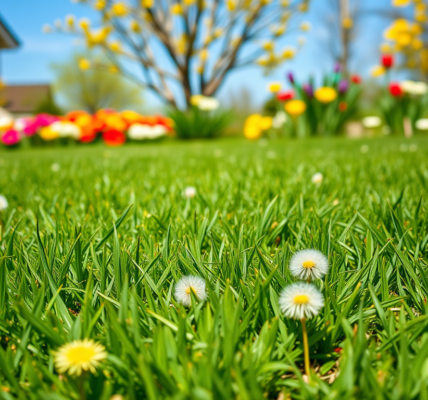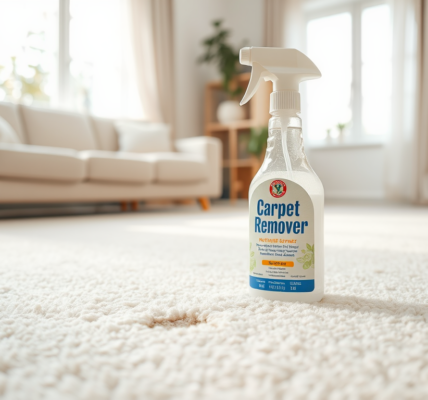Healthy soil is the foundation of a thriving garden, whether you’re growing vegetables, flowers, or shrubs. To get the best results from your gardening efforts, it’s crucial to enhance your soil’s quality. In this article, we’ll discuss various effective methods to improve your soil’s health, from understanding soil composition to practical tips like composting and mulching.
Understanding Your Soil Composition

Before you can improve your soil, you need to understand its current condition. Soil composition varies depending on the type of particles that make it up, such as sand, silt, and clay. You can start by performing a simple soil test to determine its pH level and nutrient content. Knowing if your soil is acidic, neutral, or alkaline will help you determine the appropriate amendments to add. Additionally, identifying the proportions of sand, silt, and clay will help you understand its drainage and nutrient-holding capacity.
Adding Organic Matter
One of the best ways to improve your soil is by adding organic matter like compost, mulch, or well-rotted manure. Adding organic matter helps improve soil structure, which enhances its ability to hold moisture and nutrients. Compost, made from decomposed plant materials, is particularly effective as it enriches the soil with essential nutrients and beneficial microorganisms. Here are some types of organic matter you can use:
- Compost
- Mulch
- Well-rotted manure
- Grass clippings
- Shredded leaves
Benefits of Mulching
Mulching is another excellent way to improve soil quality. It involves covering the soil surface with a layer of organic or inorganic materials. Mulching has several benefits, such as preventing weed growth, conserving moisture, and regulating soil temperature. Organic mulches, like straw, wood chips, and leaves, break down over time and add nutrients back into the soil. Inorganic mulches, such as black plastic or landscape fabric, don’t add nutrients but are effective for moisture retention and weed control.
Using Cover Crops
Utilizing cover crops is a sustainable way to enhance soil fertility. Cover crops, like legumes, clover, and mustard, are planted primarily to benefit the soil rather than for immediate harvest. These plants help in several ways: they prevent soil erosion, suppress weeds, and increase organic matter when they decompose. Legume cover crops also have the unique ability to fix nitrogen from the air into the soil, naturally enhancing its fertility. Once the cover crops are mature, you can either till them into the soil or cut them down and use them as mulch.
Avoiding Soil Compaction
Soil compaction is a common issue that reduces soil aeration and water penetration, making it difficult for plant roots to thrive. To prevent soil compaction, avoid walking on garden beds and using heavy machinery that can press the soil down. Instead, create designated pathways for walking and consider using raised beds for planting. Additionally, tilling the soil only when necessary and at the right moisture level can help maintain its structure. Aerating tools can also be used to loosen the soil and improve its texture.
Conclusion
Improving your soil is an ongoing process that requires understanding, attention, and effort. By knowing your soil composition, adding organic matter, using mulches, planting cover crops, and avoiding soil compaction, you can significantly enhance soil health. A healthy soil environment provides plants with the nutrients and conditions they need to thrive, leading to a more productive and beautiful garden.
FAQs
1. How often should I add compost to my soil?
Adding compost to your soil once or twice a year, in the spring and fall, can significantly improve soil fertility and structure.
2. What is the best mulch to use in my garden?
The best mulch depends on your garden type and goals. Organic mulches like straw, wood chips, or leaves are great for adding nutrients, while inorganic mulches like black plastic are effective for weed control and moisture retention.
3. Can I use kitchen scraps directly in my garden?
While you can add raw kitchen scraps directly to the garden, it’s usually better to compost them first. Composting helps break down materials and kills any potential pathogens.
4. How do I prevent my soil from becoming too acidic?
You can neutralize acidic soil by adding lime. Conduct a soil pH test first to determine the appropriate amount of lime needed for your garden.
5. Is it necessary to rotate cover crops?
Yes, rotating cover crops is beneficial as it helps prevent pest and disease build-up and optimizes soil nutrient levels.










